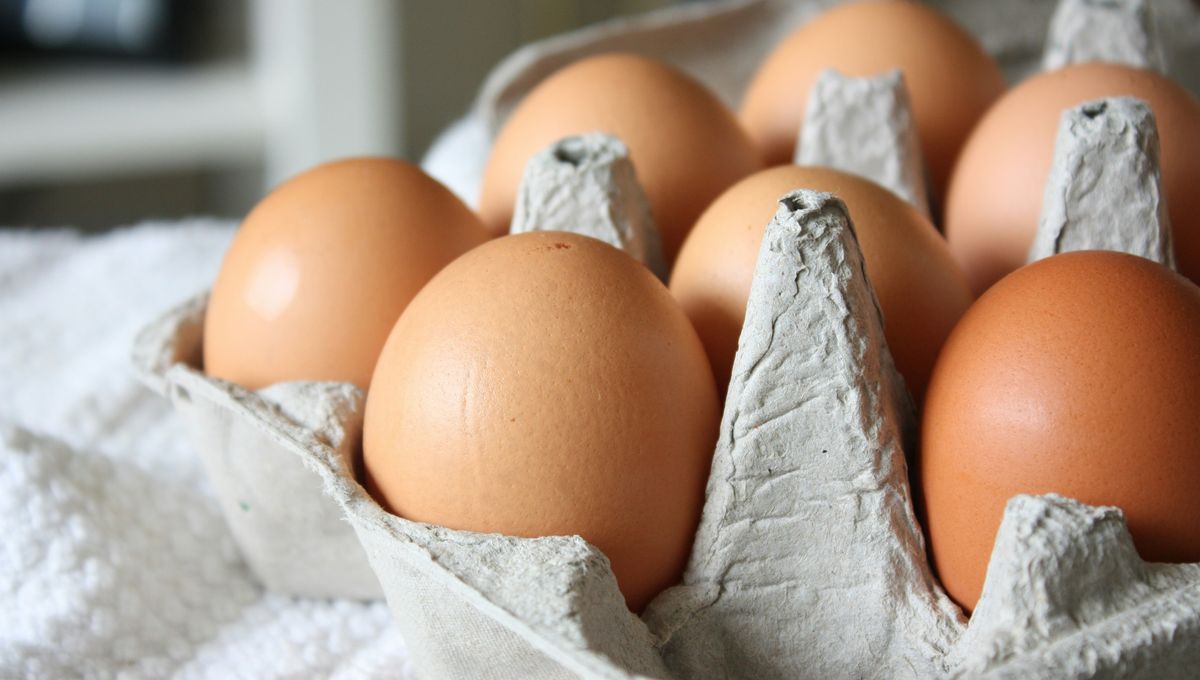
If there’s one thing we can all agree on, it’s that chickens don’t belong on boats. That being the case, it’s sometimes said that sailors can keep their eggs fresh on long voyages by storing them with the pointy side down – but is there any solid science behind this yolk tale?
ADVERTISEMENT
As far as we can tell, there haven’t been any proper studies conducted to investigate whether eggs kept this way actually last longer, although there are plenty of reasons to believe that it could work. Essentially, it all comes down to keeping harmful microbes like Salmonella and other bacteria away from the yolk, where they can multiply and cause an egg to go moldy.
Despite the apparent impenetrability of an egg’s shell, this outer coating actually contains between 7,000 and 17,000 tiny pores through which gases permeate. Unfortunately, bacteria have also been found to enter eggs via these microscopic openings, which is why eggs spoil as they get older.
For this reason, it’s sometimes claimed that coating eggs in Vaseline helps to preserve them by preventing unwanted invaders from accessing the pores – though this is also yet to be scientifically verified.
After making it through the shell, microbes typically accumulate in the air pocket which sits beneath the white – or albumen – at the rounded end of the egg. Because the egg white is alkaline and contains bactericidal proteins like lysozyme and conalbumen, these pathogens usually aren’t able to enter the albumen and reach the yolk, which is held in the middle of the white by structures called chalazae.
The problem with keeping an egg with the rounded end down, however, is that this air pocket will always try to float up and will therefore constantly push against the albumen. As an egg ages and more air enters the pores, this pocket gets bigger and applies increased pressure on the bottom of the white.
The increased size of the air sac also explains why older eggs tend to float in water while fresh eggs sink.
ADVERTISEMENT
Moreover, as the chalazae weaken, the yolk can drop, making it easier for the bacteria within the air sac to access it and wreak havoc.
However, by flipping eggs upside down so that the air pocket is at the top, the problem of this air trying to float up through the albumen is eliminated. This ensures that the growing community of bacteria within the egg has a much smaller chance of coming into contact with the yolk, which means eggs shouldn’t spoil as quickly when kept in this position.
Having said that, it’s essential that we remind you once again that this trick has not been scientifically verified and we are not advising anyone to store their eggs in this way. For information on how to safely keep eggs, we recommend consulting authorities like the Food and Drug Administration, which endorses refrigerating them at a temperature below 4.4°C (40°F) and eating them within three weeks.
So if you do happen to be a sailor preparing for a lengthy stay at sea and you’re really worried about your eggs, maybe just get a fridge installed on your boat.
Source Link: Does Turning Eggs Upside Down Really Keep Them Fresh For Longer?